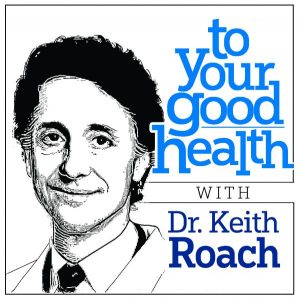GOOD HEALTH: NAC supplement helps curb cravings to smoke
By Dr. Keith Roach — March 13, 2023 DEAR DR. ROACH: I’d like to have your thoughts on what value the NAC supplement may have in reducing cravings for marijuana or nicotine?
DEAR DR. ROACH: I’d like to have your thoughts on what value the NAC supplement may have in reducing cravings for marijuana or nicotine?
I’m 73 and have been smoking marijuana daily since I was 21. Now I’m quitting for health reasons. I’ve been taking 1,000 mg of NAC every morning, as I’ve read it helps with smoking cravings. It also seems to be used for anxiety and other mental health issues, lung and heart problems … the list goes on.
I’m not going to smoke anymore, but I’m just wondering what your take is on this, as I’m thinking of sending it to my 38-year-old son who’s been addicted to vaping/cigarettes since he was a young man. He has ADD, anxiety and problems with breath capacity, and he may have heart problems as well. He’s smoking to relieve his ADD and anxiety. And, of course, he’d like to quit, but it’s so hard to do so.
Can the NAC supplement help me with the urge to smoke? I think it has reduced the cravings, but how would I even know? — M.M.
ANSWER: N-acetyl cysteine, a precursor to the amino acid cysteine, has several roles in medicine, as you say. When inhaled, it breaks up mucous, which helps people cough out thick sputum. When used intravenously, it’s a specific antidote to acetaminophen (Tylenol) overdose. It has been used in these capacaties for years and is safe and well-tolerated.
But, in addition, there is data that shows oral NAC (sold as a dietary supplement) may have a role in helping people overcome addictions to tobacco, with small trials showing a reduction in smoking as well as the relapse rate in people using NAC compared with a placebo.
In people who want to reduce their cannabis use, most of the data on NAC has been on younger people (adolescents and young adults), but also shows some benefit. More stringent trials are ongoing.
It is very difficult for a single person (patient or physician) to tell whether it’s a “real” effect or a “placebo” effect that is causing the reduction in cravings. Only large-scale, placebo-controlled trials can show with confidence whether the treatment is more effective than a placebo. But, since the supplement is inexpensive and highly safe, and since a third-party lab found that the brands of NAC sold at reputable stores are what they say they are, I say it might be helpful.
However, there are many other products that are proven to be safe and effective to help with quitting smoking, ranging from group tobacco cessation classes to nicotine replacement therapy, to prescription medications like varenicline and bupropion — all of which have many years of proven clinical efficacy.
Finally, there are a lot of people with attention deficit/hyperactivity disorder who are not getting appropriate treatment as adults. Getting treatment by an expert in ADD might make quitting smoking easier and may also improve many other areas of functioning for your son.
Dr. Roach regrets that he is unable to answer individual questions, but will incorporate them in the column whenever possible. Readers may email questions to ToYourGoodHealth@med.cornell.edu.
© 2023 North America Synd., Inc.
All Rights Reserved







